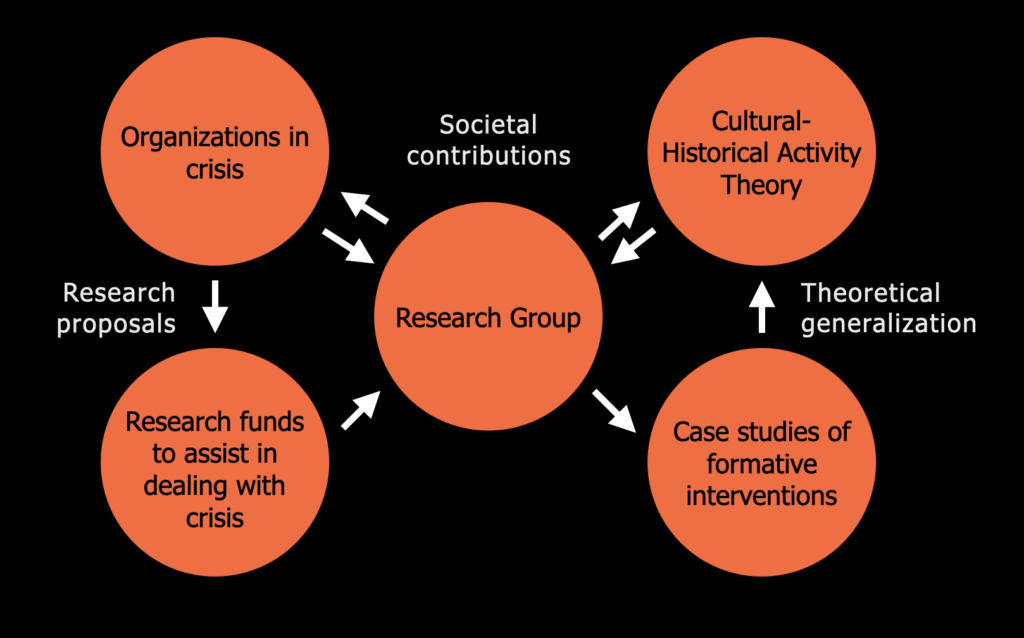Formative Intervention is a method for studying concept formation inside organizations in moments of turmoil, confusion, or stagnation (Engeström, 2011). The interventionist researcher identifies the contradictions hindering organization development and presents them for discussion with the research participants. Typically, the researcher brings theoretical concepts from Cultural Historical Activity Theory (CHAT) to explain and analyze these contradictions. Despite provoking the participants to think about the contradictions, the interventionist leaves enough room for the participants to lead the discussion and take action. The development of participants’ agency is a sign that the intervention is reaching its goal: the formation of concrete concepts that can deal with the most pressing contradictions in the organization. The interventionist does not introduce or propose the concept, instead, she creates the conditions for its emergence, mainly through Change Laboratory workshops. Usually, formative interventions include ethnographic research on organization contradictions and double stimulation experiments with expansive instruments. I am doing research on framing participatory design projects as formative interventions.
Formative interventions are prone to acquire funding from organizations and funding agencies interested in figuring a way out of a crisis.

Reference: Engeström, Y. (2011). From design experiments to formative interventions. Theory & Psychology, 21(5), 598-628.